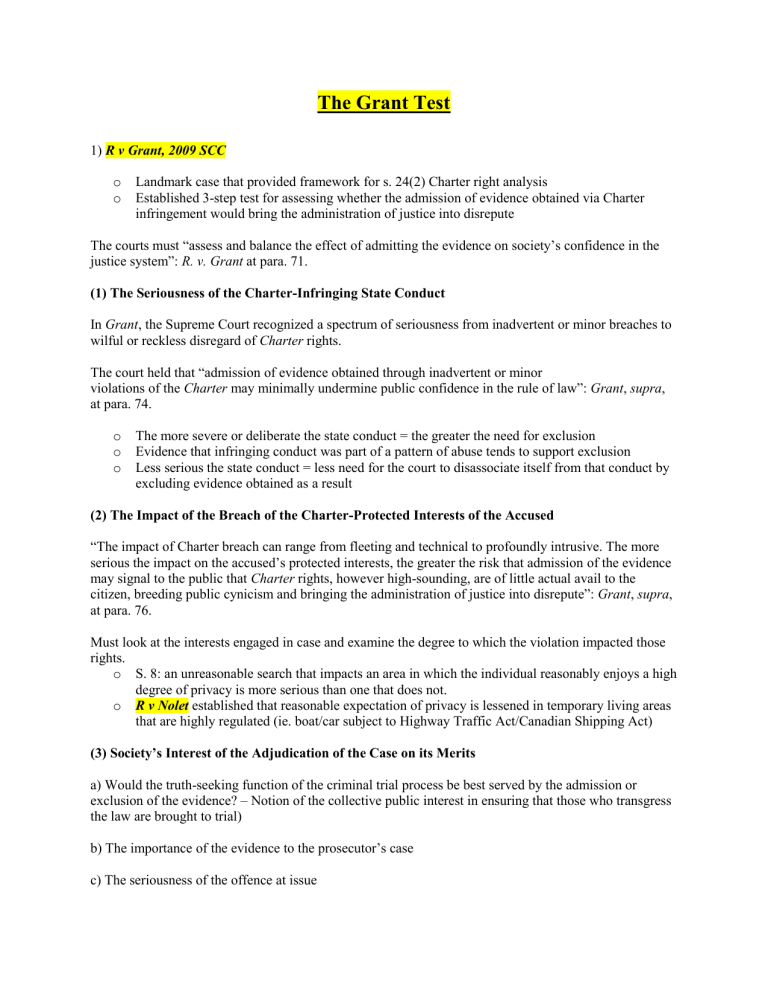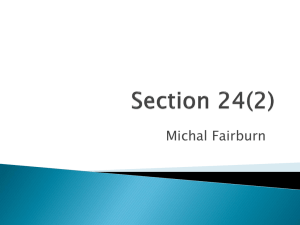
The Grant Test 1) R v Grant, 2009 SCC o o Landmark case that provided framework for s. 24(2) Charter right analysis Established 3-step test for assessing whether the admission of evidence obtained via Charter infringement would bring the administration of justice into disrepute The courts must “assess and balance the effect of admitting the evidence on society’s confidence in the justice system”: R. v. Grant at para. 71. (1) The Seriousness of the Charter-Infringing State Conduct In Grant, the Supreme Court recognized a spectrum of seriousness from inadvertent or minor breaches to wilful or reckless disregard of Charter rights. The court held that “admission of evidence obtained through inadvertent or minor violations of the Charter may minimally undermine public confidence in the rule of law”: Grant, supra, at para. 74. o o o The more severe or deliberate the state conduct = the greater the need for exclusion Evidence that infringing conduct was part of a pattern of abuse tends to support exclusion Less serious the state conduct = less need for the court to disassociate itself from that conduct by excluding evidence obtained as a result (2) The Impact of the Breach of the Charter-Protected Interests of the Accused “The impact of Charter breach can range from fleeting and technical to profoundly intrusive. The more serious the impact on the accused’s protected interests, the greater the risk that admission of the evidence may signal to the public that Charter rights, however high-sounding, are of little actual avail to the citizen, breeding public cynicism and bringing the administration of justice into disrepute”: Grant, supra, at para. 76. Must look at the interests engaged in case and examine the degree to which the violation impacted those rights. o S. 8: an unreasonable search that impacts an area in which the individual reasonably enjoys a high degree of privacy is more serious than one that does not. o R v Nolet established that reasonable expectation of privacy is lessened in temporary living areas that are highly regulated (ie. boat/car subject to Highway Traffic Act/Canadian Shipping Act) (3) Society’s Interest of the Adjudication of the Case on its Merits a) Would the truth-seeking function of the criminal trial process be best served by the admission or exclusion of the evidence? – Notion of the collective public interest in ensuring that those who transgress the law are brought to trial) b) The importance of the evidence to the prosecutor’s case c) The seriousness of the offence at issue




